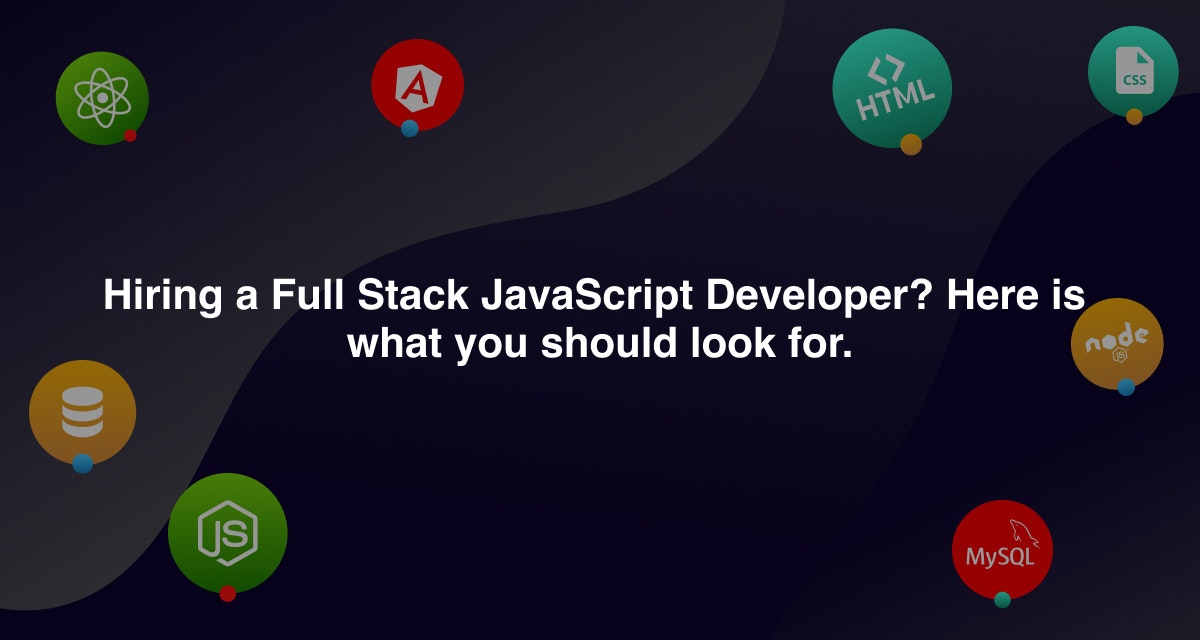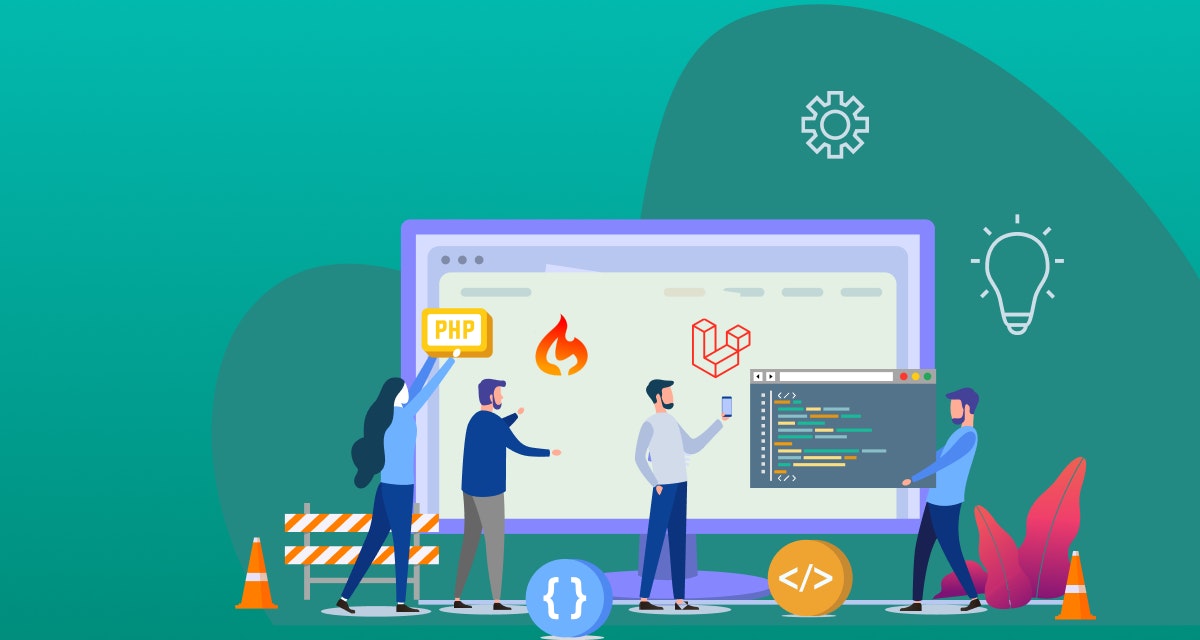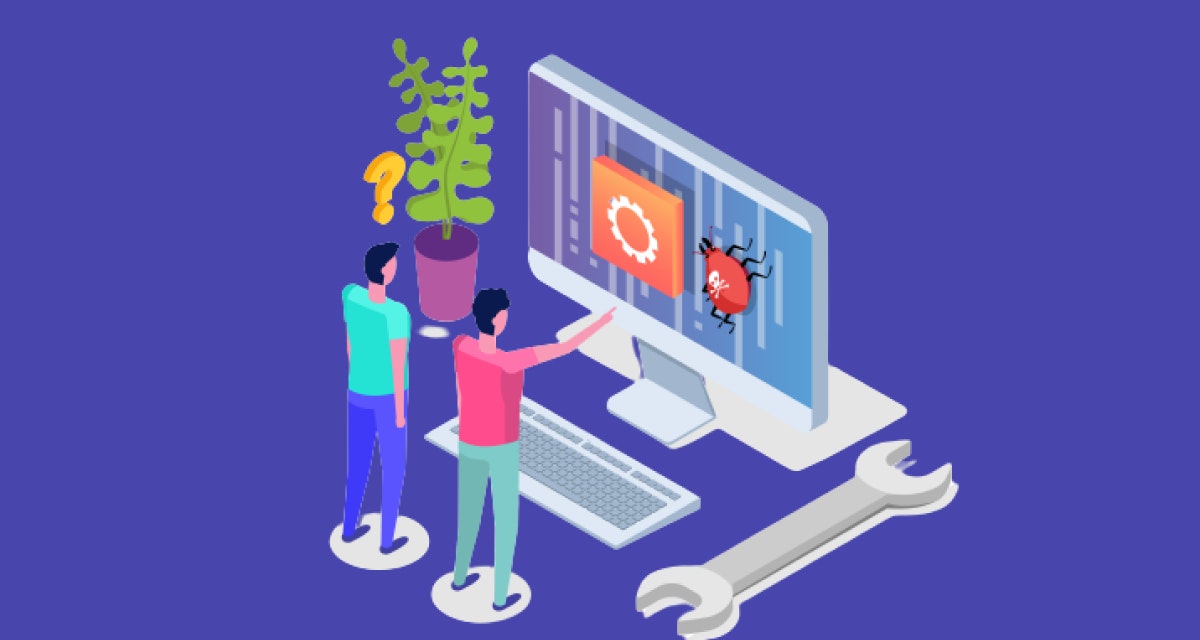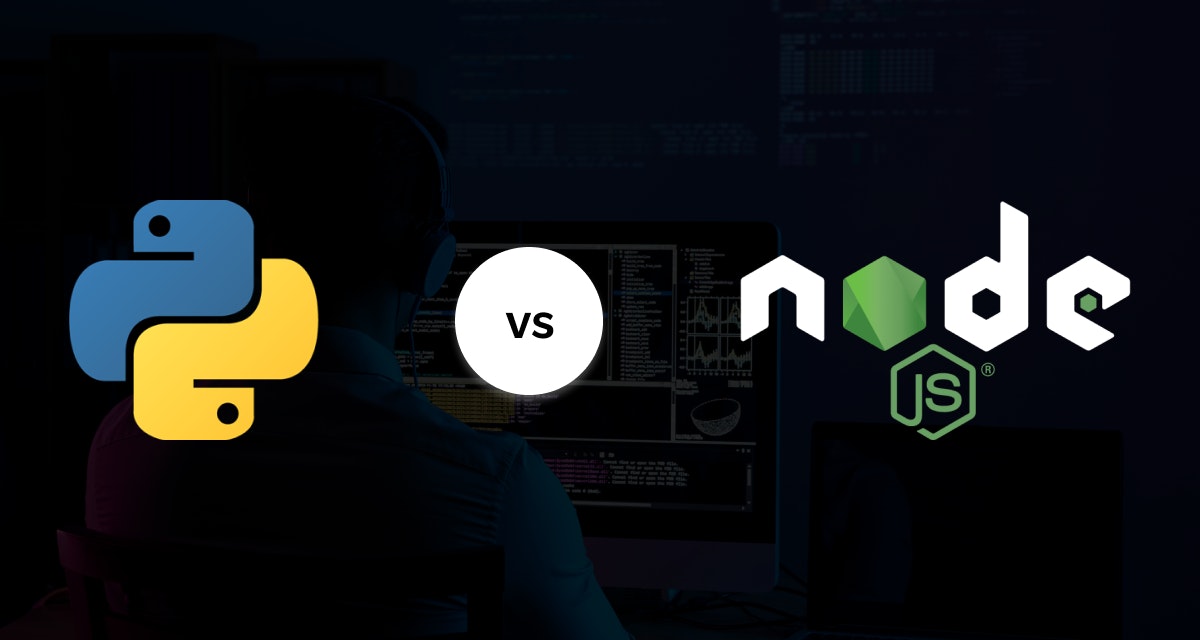Is Full Stack development a myth?
Full Stack developer is more of a business buzzword and not really an engineering designation. It is a term that has evolved to describe the rare skilled developer that has a fair understanding of each stage of software development as well as specialized knowledge in one domain. A full stack developer has a level of understanding of mobile development, server operations, design as well as front end and backend tech stack.
In our guide, we will look at understanding what a full stack developer brings to the table, and when to go for one. We will also help you make the decision whether a full stack developer is a right choice to go for in the case of your app or software project.
<h1>
<span
class="text" data-text="EDIT ME">
EDIT ME
</span><span data-text="|">|</span>
</h1>
When to choose a Full Stack developer v/s Specialized developer
Sometimes you get torn between whether to hire full-stack developers or specialists to handle each layer separately. A survey done by StackOverflow revealed that only 28% of developers can do full stack web developers tasks. This is clearly a minority and it can be really tough to gauge a full stack developer’s skills as there are very few interviewers or even CTOs that have the necessary skill set themselves
When to hire Full-stack Developers?
- When you are starting out
It is advisable to have a single full-stack developer when starting out on a new web project. They are good at coming up with solutions from scratch and place the app components where they should be hence, building a basic software architecture. - When in need of a Technical Lead
It is recommended to get your team a full stack developer especially when your developers’ team has no technical leader. It is good to have someone in charge of coordination of tasks and supervising activities across your team. Full stack developers have broad knowledge of all layers and sublayers within your stack. - When constrained by cost
If your budget is limited, get yourself a full stack developer in order to get the most value out of the developer. This will however affect development speed since full stack developers won't go as fast as skilled specialized developers who focus on a single task. This will help you save on costs incurred on communication between developers since there won't be many of them.
When to hire Specialized Developers?
When there is a need to optimize for speed or traffic
Once your web application is well established, there might be need to optimize its speed or its capability to handle higher traffic. In such cases, you should hire individuals deeply specialized in these skill sets. You will need people with years of experience in given technological layers. Such highly skilled experts best understand optimization problems, small quirks as well as bottlenecks of the field they are experts in. Many times, these experts have knowledge that massively exceeds all the available documentation.
In such situations, full stack developers are not a good choice.
When a large development team is already in place
When your app hits a certain scale and you have a number of people working on it, you should hire more people that are going to specialize and focus only on certain aspects of it. This trickles down to the aspect of speed and load boosting.
At a certain stage, you will require more people that can focus and deal with small aspects exemplarily well. This will not only prevent them from interfering with one another but also help you increase the overall quality of your app.
When the task only requires knowledge of a single layer
In some occasions, the task you want done only requires knowledge of a certain affected layer. For example, if your task is simply to create an API service, then you should hire a back-end developer.
On the other hand, if you need to create a static website, you should look for a front-end developer. It is good to opt for a more specialized professional when you know that their skills takes care of all your needs.
Layers of a Full stack developer skill set
The Front-end
This layer relates to all elements you can see physically. Generally, the front-end layer puts into use three basic technologies to create a rich experience; CSS for style, HTML for structure and full stack JavaScript development for logic.
When looking for someone with good front-end skills, you should look for their previous work and seek beautiful-looking websites that are fast and snappy.
If you are creating SPA-style, the front-end is going to be separated from back-end on structural level. In such scenarios, if the back-end API is already in place, then the application can be built using front-end technologies only.
The Back-end
The back-end layer refers to all the components working on a server. The end user can't see them visually but every advanced application must have them in order to work efficiently well.
In some occasions, the back end boils down into an API service, handling text responses to each inquiry from the user end.
This layer is often hard to verify since it is more technical. What you ought to look for when assessing back-end skills is a good design and documentation, the right endpoint behavior and appropriate storage of data as well as database design schemes. You might require some help to verify all the information if you don't have the needed expertise.
DevOps
The DevOps activities refers to all the actions needed to acquire and run servers, update and deploy applications and scale up the capabilities of the system.
Specialists handling this layer are also tasked with creating and managing caches, databases, cloud storage as well as cloud APIs. DevOps skills can be evaluated by looking at an individual's experience in administering servers, scaling systems and managing cloud hosting providers.
You can verify if an individual has previously handled automatic monitoring of multiple servers, automatic cluster deployment etc. Generally, you can easily acquire these experiences while working for large enterprises because they handle more traffic and have larger budgets for their operations.
Front End Development skills to look for
HTML+CSS
HTML (Hyper Text Markup Language) and CSS are the most basic parts of the front end web development. HTML pertains the sketchy components of the web page while CSS introduces color and style to the web page forming an attractive web appearance. The color, text and images we see on the web are usually implemented through HTML+CSS.
HTML is used mainly for the layout and you ought to be adept on div, font, span etc. CSS on the other hand, is mainly used to finish HTML layout and display in what is commonly called "CSS Style"
You therefore need to be familiar with position, float, width, overflow, margin and other related tags. The two languages are easy to learn and are related to the layout style.
JavaScript
Full stack javascript development is one of the most necessary skill set for a front end developer. It is a popular skill in client-side script language where it is used to add unique functions to HTML pages. A Stack Overflow survey revealed that JavaScript is the leading language among users and has stamped its authority in the market with over 62.5% share in terms of popularity of programming languages. As a consequence, full stack javascript developers are in high demand and are highly sought after.
jQuery
jQuery can be said to be a lightweight JS library compatible with CSS3 as well as other web browsers like Opera 9.0+, Safari 2.0+ etc. It helps manage HTML and animation effects in a convenient way.
CSS and JavaScript frameworks
JavaScript and CSS are a major part of front end development hence requires a lot of other skills, that's where JavaScript and CSS frameworks come in handy. A full stack js developer must be well versed in these frameworks to be considered effective. Both are collections of JS and CSS files that do multiple tasks for you to achieve common functionality. You can start with a code file with awesome JavaScript already in it instead of starting with an empty text document.
Back End Development Skills
A Programming Language
This is an important skill for back end developers. When a browser submits a request to the web server, it (the server) needs to provide a response. In most cases, data needs to be extracted from a database and displayed through a query. Developing any application requires programming skills.
Database and SQL
Think of a database as a kind of collection of spreadsheets. A database is like an individual spreadsheet with data kept in rows and columns. There are lots of database programs including MySQL and SQL server. They all, however, work similarly storing data in rows and columns within tables.
HTML
HTML improves the appearance of articles within a web page. Every website uses some HTML because that's what web browsers expect. Back end developers however, don't have to write the entire site's HTML code by themselves: instead, they rely on front end developers to do so.
JSON or XML APIs
Web browsers aren't the only programs that communicate with a web app. Many times, a company will offer a mobile app for Android and iOS along with their website. There are also browser based apps that use JavaScript primarily. To retrieve data for display, the apps will need an Application Programmer Interface to connect to.
Front end technology and tools
The front end is what a user interacts with, the clicks, touch, user input and the navigation models among others. Therefore, front end tools and technologies are necessary in creating an app that will provide a great user experience. A full stack JavaScript developer must have knowledge in HTML5, TypeScript, JavaScript, and CSS3. Additionally, the developer must be able to work well with frameworks such as React, JQuery, Vue, AngularJS, SASS, or LESS.
Backend technology and tools
An app needs to load fast and run smoothly. These two are achieved by a full stack developer who has a good grasp of back end technologies and tools. The developer must be able to work with server-side languages such as .Net. Python, Ruby and Java. The developer also have good experience with MySQL, SQL Server and Oracle
Programming Languages
Programming languages are the basis of any app development. A full stack JavaScript developer should know how to code the back end processes, apply the language syntax appropriately, and be able to design, structure, test and deploy the developed codes appropriately.
The developer should be able to use at least one of the major programming languages in creating databases where user input and other data are stored. Such programming languages include C#, PHP, Java, Python, and Ruby among others.
The more programming languages the full stack developer knows the better. This will enable the developer to work on different projects. However, a good full stack developer should be very proficient one particular language and be familiar with the rest.
Development Frameworks
Database Management
Applications must be backed up by functional database management systems for storing and processing data. This means that, it is mandatory for a full stack developer to be proficient in the concepts of relational databases and memory storage, and how to integrate them with the code for them to function seamlessly. Database servers include MongoDB, Oracle DB, SQL,MySQL.
Design ability
Ability to design a prototype and the user interfaces is another skill that the full stack developer should have. An app should give a user a delightful experience at every touchpoint and customer interaction, and a full stack developer should be able to achieve that. An app that functions well but does not appeal to the user is useless. The developer should be able to code responsive designs to accommodate different devices such as computers, tablets, and phones on which the applications run.
How to interview and hire a Full Stack developer
When hiring a Full Stack developer there are several considerations that you should make. First, you should have knowledge on the type of stack you would like for your project. In case you have not settled on a particular one, you can be open for several different options.
You must seek the help of your CTO, or the technical department while hiring for this role, as it requires a lot of hands on effort. When sifting through the resumes pay attention to the candidates previous experiences and look for extensive experience in the software stack that you have chosen for your project.
Additionally, consider the previous projects that the candidates have worked on. From the shortlist, you can select those who have worked on projects that are somewhat similar to your app or project.
After going through the applications and finding a number of potential candidates, the next agenda will be conducting interviews.
So, what questions do you ask while interviewing a full stack developer?
From a technical view of things, full stack interview questions should be about past experiences the candidates have in handling projects similar to yours. Ask about the approach they will take in tackling the project at hand. Verify if their approach is aligned with your vision. It is crucial to have a similar understanding on how they are planning to attain your goals.
You can also ask them to give an example source code they have worked on before. It can be a open-source contribution or a side project. You will have to request your CTO or programmer to review it and determine if the code is clean and functional.
If you to make a choice between sending the candidate a test to implement or to review their previous work, you should always go for the second one. It is much better to review a project they worked on previously for a period of time and care about. It also shows that you respect them, their work and their time.
You can also ask them the following interview questions to check for their knowledge in these specific domains.
- If I want to code a website that performs well on search what should I keep in mind?
- How do I optimize my website for maximum scalability?
- How do I protect my publicly accessible API from being accessed or scraped by a bot?
- How would I code a website banner so that it renders well on all device screens?
- If you are designing a login page, how would you ensure your form is centered appropriately?
Choosing a full stack development company
If you are pressed for time and budgets, it makes more sense to choose a full stack development company rather than hiring and scaling your own tech team. This way you can keep focusing on the business side of your app and website and leave the nitty gritties of development to an expert team.
We at Intuz, are a San Francisco based mobile app development company and we offer full stack development services through a variety of engagement models based on your requirements.
We have a strong team of 25+ skilled full stack developers in house to help you on your next project. We have over 1500+ successful app launches to our credit as well as an excellent satisfaction rating of 4.6 stars on the Clutch platform and 5 stars on Appfutura. We have crafted award winning digital products for world class clients including AMG Mercedes, JLL (Real Estate), Holiday Inn, SGC, Pocket Money amongst others.
Whether you are looking for a project at a fixed cost or looking for an outsourced team, we can help you with your fullstack development requirements. If you have a project in mind, simply reach out to us to get a free consultation and we will guide you on the engagement model that’s right for you.
Advantages of going for a Full Stack development company
No Hiring Headaches
Hiring a full stack development company eliminates hiring headaches. A full stack app development company has all the skills required to develop any platform i.e both front-end and back-end skills. This means that the hard work involved in finding developers with specific skills is avoided.
Single POC to communicate with
Hiring specialized full stack app development companies means that there is a centralized communication channel and you don’t have to deal with multiple developers. Communications are channeled to the project manager, and then they take responsibility of delivering the brief to their team. You do not need to follow specific developer to determine if they received specific directives or not.
Cost-effective than hiring your own team
Outsourcing to a full stack development company is very cost effective in case of one time projects. You only engage the company when you have a project. However, hiring an in house full stack developer means that they may be underutilized and not work at an optimum efficiency if there is no project that requires a full stack tech stack. This means you will be stuck with higher spend on salaries as Full stack developers are very expensive.
Covers both Frontend and Backend and saves dev effort
A full stack developer company has employees equipped with both front-end and back-end developer skills. As a result dev efforts of seeking extra talent is saved.
You don’t need to hire a separate design team
When you hire a full development stack company, all the talent you need to develop an application from conceptualization to final launch is available on the roster. As a result, you do not need to outsource a separate design team.
Assured delivery of project
Rather than individual coders or freelancers, app development companies have their reputation on the line. A single negative review can affect their bottom line, so you can be assured of professionalism at all times. These companies seek to protect their reputation and at the same time meet their client’s needs. As a result, they guarantee quality and timely delivery of a project as outlined in the Scope of Work agreement.
Strong QC practices in place
Full stack companies have a wealth of experience gained over the years when implementing diverse projects. To ensure final projects meet client’s requirements and industrial standards, they have a set of strict QC that are adhered to in every project. Therefore, hiring a full stack company assures you that your app or website project will meet the industry standards in terms of design and performance.
Easy maintenance and long term feasibility
A full stack company assigns a particular project to a specific team. This makes maintenance easy due to consistency. Engagement of the same team makes it easy to make follow-up and guarantees that maintenance will be done in a timely manner.





